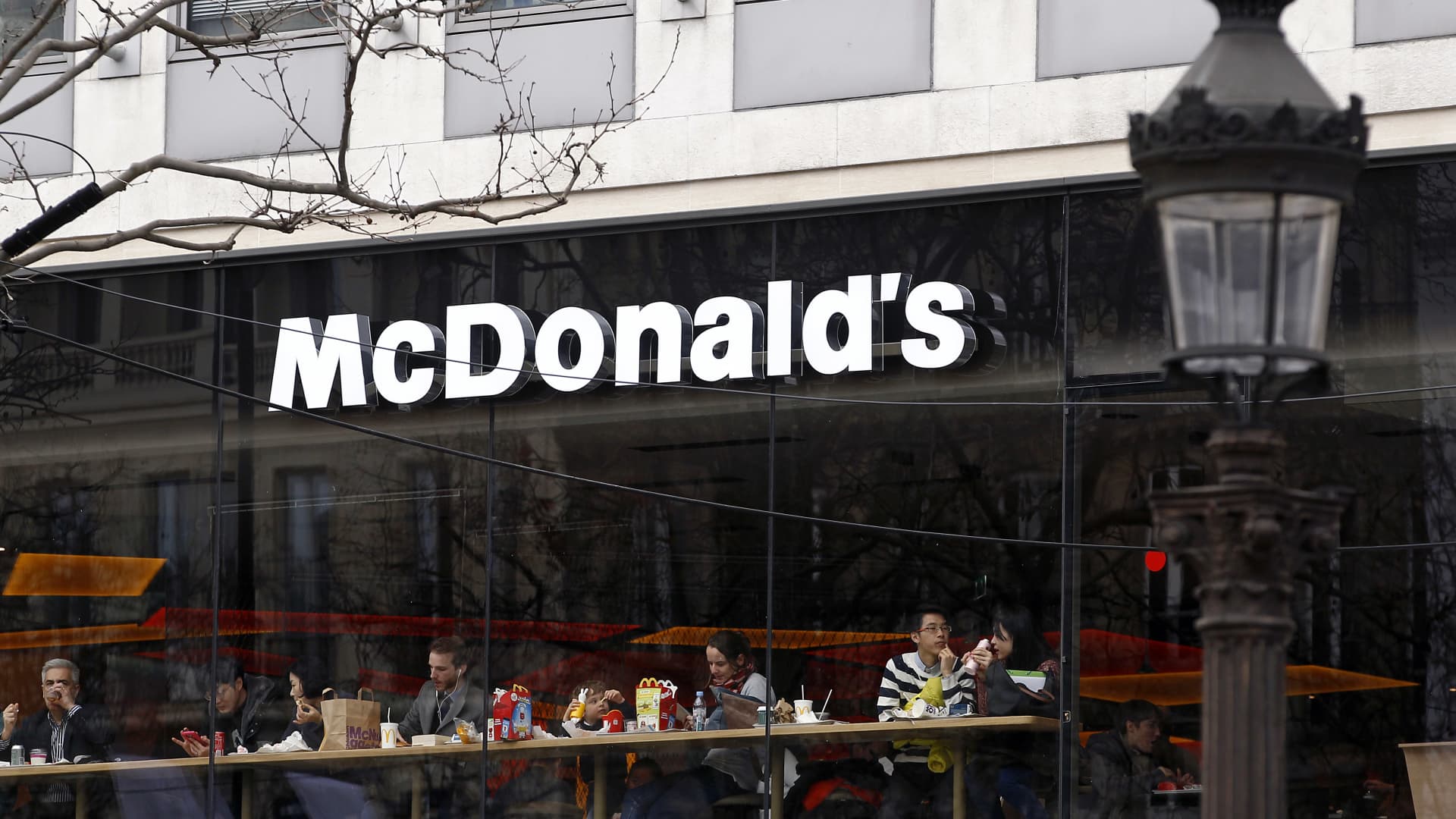
In France, a land of fine dining, Michelin stars and high standards for cuisine, there’s a surprising favorite: American fast food.
In 2023, the nation ranked third in Europe for fast-food sales, with a total of 19 billion euros, according to market research company Euromonitor International.
“An appetite for the American way of life has built in France, a big appetite,” Xavier Expilly, president and founder of consulting firm EXPM, told CNBC.
Expilly oversaw Popeyes’ 2023 arrival in France while serving as COO of Popeyes France for French restaurant group Napaqaro. The group holds a master franchise and development agreement with Restaurant Brands International, the Canadian-American holding company that owns several quick service restaurants, or QSRs, including Popeyes and Burger King.
“The QSR American brands have iconic products that anchor the brand in customers’ minds,” Expilly said, naming menu items including McDonald’s Big Mac, Burger King’s Whopper, and Popeyes’ chicken sandwich. “American enterprises were the first to do that.”
“People in France want to discover other tastes,” said Expilly. “And when you explain that with a good story, with an iconic burger, you succeed.”
Burgers are the most popular fast-food item globally, followed by chicken, “snack,” pizza, then sandwich, according to IBISWorld.
This holds in France, where QSRs that served burgers accounted for 47%, or 9.1 billion euros, of all QSR sales in 2023.
McDonald’s holds the largest share, partly because it was there first, opening in the Paris suburb Créteil in 1972. The burger giant has more than 1,500 outlets in France as of March 2024.
Analysts say McDonald’s continued success was the catalyst for a lot of other QSRs to consider the French market in the 2010s, as France was McDonald’s second-biggest market, after the U.S.
“These concepts kind of set their sights internationally to say, ‘Okay, it’s a very tough race in the United States; where internationally can we find success?'” said Andrew Charles, a managing director and senior restaurant analyst at TD Cowen.
“They saw that as a ripe opportunity for growth, really sparking off the rush into France for a lot of these burger and other quick service concepts,” Charles said.
Burger King specifically has gone aggressively after the market “given the propensity for American quick service foods and concepts in France,” Charles said.
Burger King reentered the French market in 2012 after a 15-year hiatus, and is second, despite the continuous expansions of other chains, such as KFC, Domino’s Pizza and Subway in France.
In 2024, McDonald’s and Burger King hold more than 40% of the market, according to Euromonitor International, and now consider it their biggest one outside the U.S.
Beyond clever marketing, QSRs adapted to a changing French society, which prioritizes convenience and affordability in a world with shortened lunch breaks and high inflation.
Trends such as digitization accelerated during the pandemic, changing consumers’ buying habits forever.
“We have a very small part, for instance, now of our customers coming at the counter to order,” said Joel Tissier, CEO of Domino’s Pizza France. “It’s less than 10% of our orders; 60% are online.”
French QSRs did take a hit in 2020, but the industry bounced back quickly, earning more profits in 2021 than before the pandemic, according to Euromonitor International.
Cafes, bars and full-service restaurants, on the other hand, still haven’t recovered.
Tissier said staying competitive post-pandemic now requires companies to own two sets of skills.
“I compete with pizzas, on one hand, so I need to be the best in class in that universe,” said Tissier. “But I also need to be the best in class on the delivery business, because, again, I do have share actors like McDonald’s and BK that are between seven and 12 times bigger than me.”
Watch this video to learn more.
